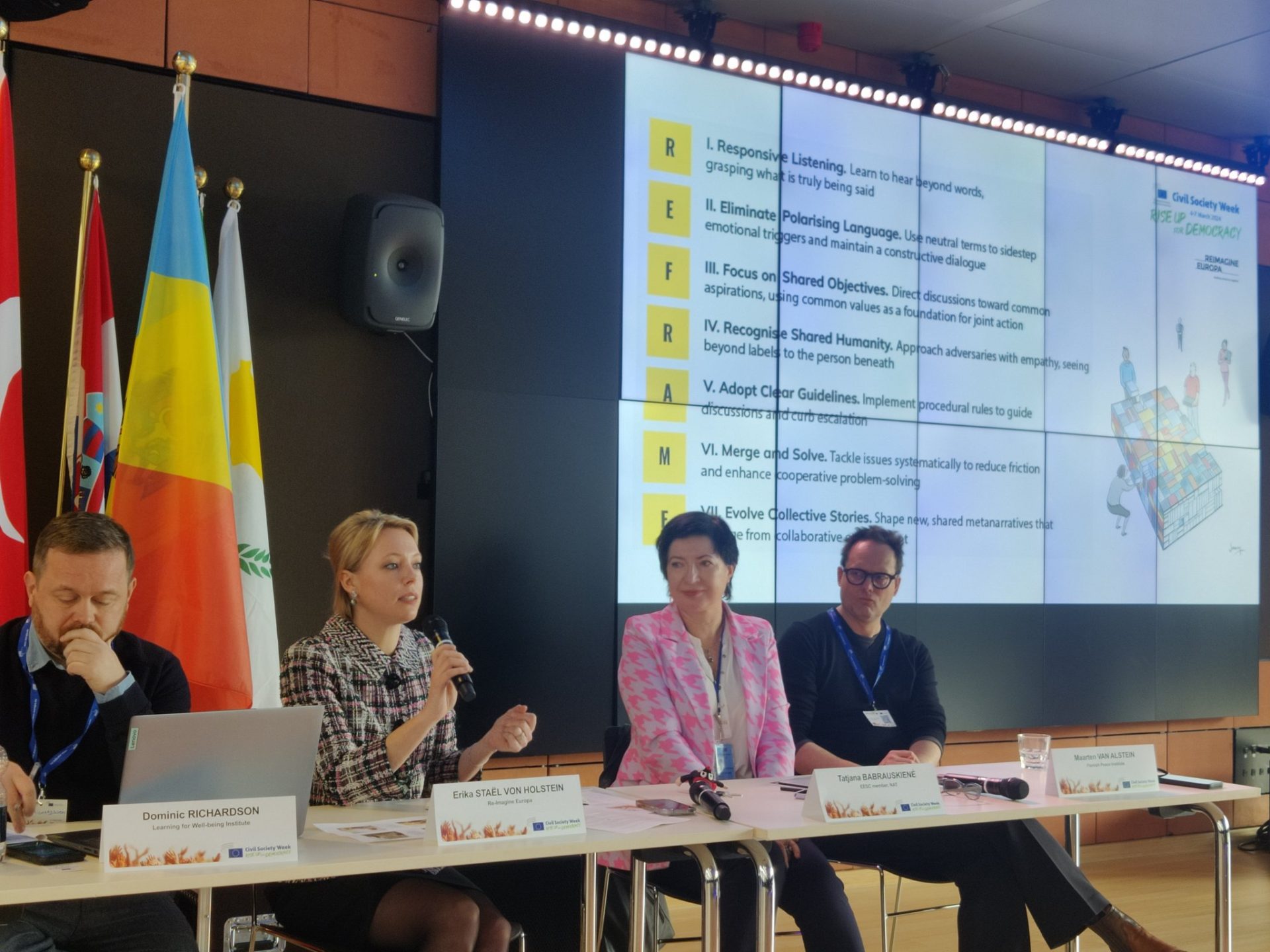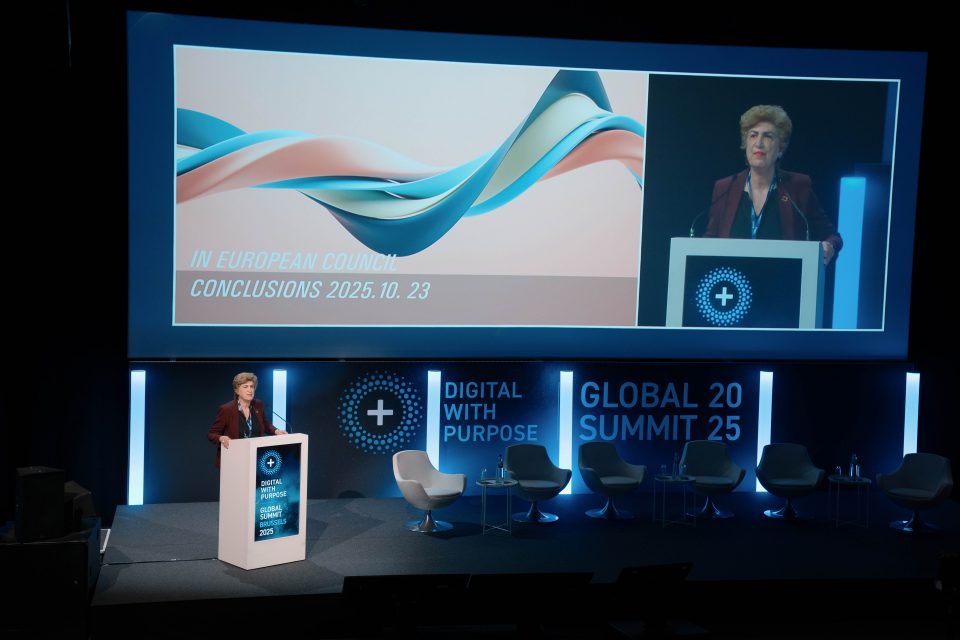Integrated in the programme of the first edition of Civil Society Week, organised by the European Economic and Social Committee, Re-Imagine Europa co-organised a workshop on “Education to Tackle Polarisation and Enhance Democracy”. The workshop counted a panel discussion on the state of the art of polarisation in Europe, followed by smaller working groups to discuss topics related to education tackling polarisation following an intergenerational and lifelong learning perspective.
The first edition of the Civil Society Week, organised by the European Economic and Social Committee, gathers a wide range of civil society organisations, from NGOs, trade unions, media to EU institutions and youth groups, for vibrant debates on key topics to Europe’s future, ahead of the European Elections in June 2024. Integrated in its official programme, and in collaboration with the Evens Foundation, the Philea – Philanthropy Europe Association, the Learning for Well-being Foundation, the Lifelong Learning Platform – European Civil Society for Education (LLLP), and the EESC’s Section for Employment, Social Affairs and Citizenship (SOC), Re-Imagine Europa co-organised a workshop on “Education to Tackle Polarisation and Enhance Democracy”.
Education plays a critical role in preparing members of society to be active and responsible citizens. The very idea of a ‘shared experience’ is undermined by our increasingly polarised society because we can no longer agree on basic truths. Understanding polarisation, its dynamics and its impact on society is the first step in allowing education to plan its responses in terms of preparing future citizens. The workshop aimed to investigate and start to collectively brainstorm potential answers by educational sectors to polarisation.
The workshop started with an introductory panel on the “state of the art of polarisation in Europe, drivers of the process and potential educational replies for social change”, with insightful interventions from Tatjana Babrauskienė, Maarten Van Alstein, Erika Staël von Holstein and Dominic Richardson.
Tatjana Babrauskienė argued that “through debates, we learn from each other and build common knowledge”. Maarten Van Alstein, Researcher at the Flemish Peace Institute, identified two main challenges for education: first, transform toxic polarisation into a healthier democratic disagreement; second, create a safe and shielded environment in which young people can experiment with polarising topics.
Dominic Richardson, Director of Learning for Well-being Institute, highlighted that “there is something very human in polarisation, we pick sides because we are looking for community and security. (…) Therefore, we need to work on the development of elementary skills such as: listening and empathising, asking questions, feeling things, and seeing patterns. Mastering these skills improves our ability to talk to others.”
In her intervention, Erika Staël von Holstein, Chief Executive at Re-Imagine Europa, delved into the importance of understanding narratives to tackle and combat disinformation because “everything starts in the mind. Reasoning is constructed through narratives and stories that we build as societies, including both those that divide and those that separate”. Staël von Holstein argued that “it is no longer about winning debates or arguments – instead, we need new ideas to create new solutions. Creativity is a wonderful attribute that humans possess, so we need to teach our kids to make use of it and developed new ideas”. According to RIE’s Chief Executive, it is necessary to update the 20th-century thinking patterns for the 21st century. “Therefore, education is at a central point – if we start showing our children that strength is in diversity rather than winning a debate, we will be able to go beyond our current thinking”.




